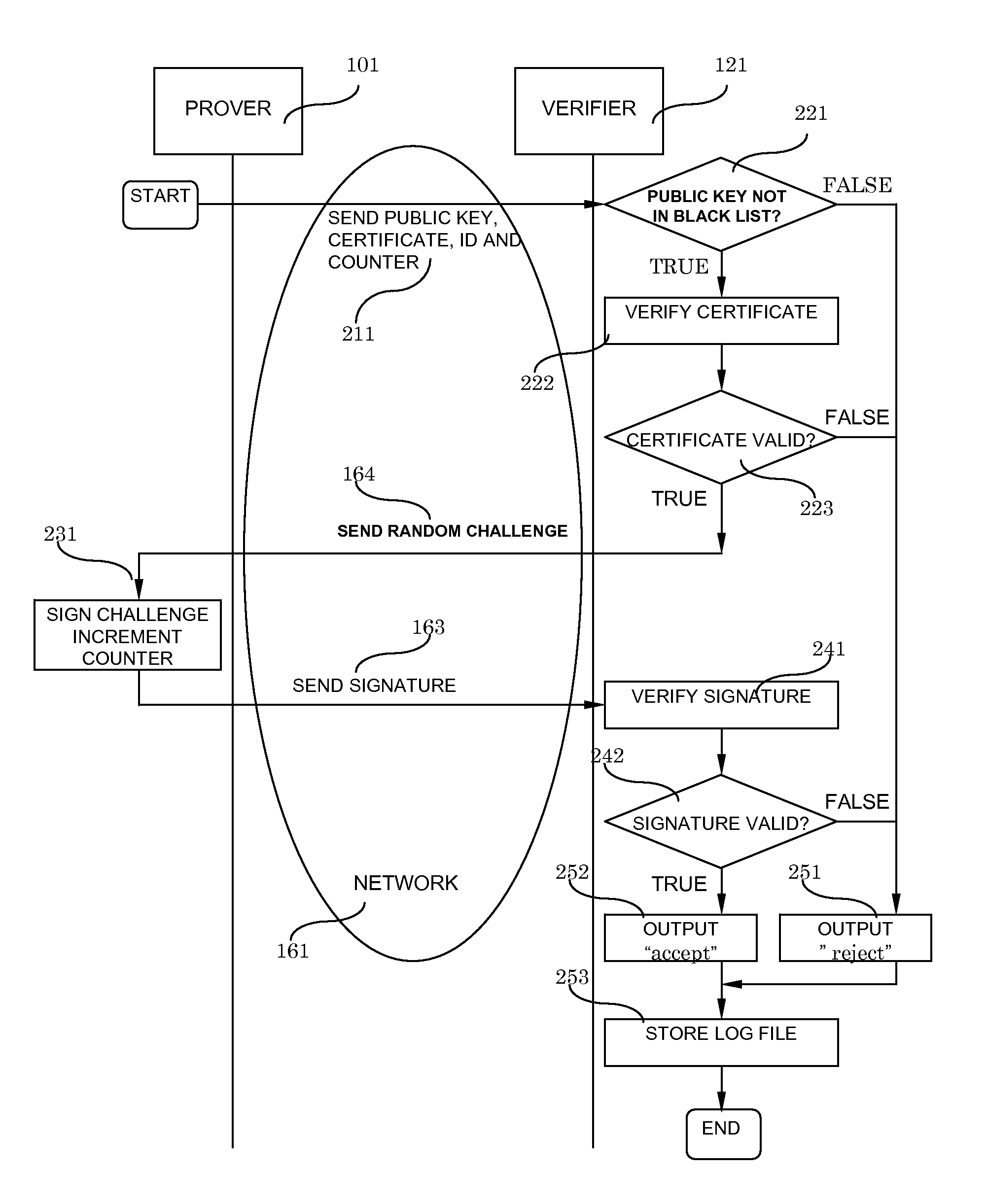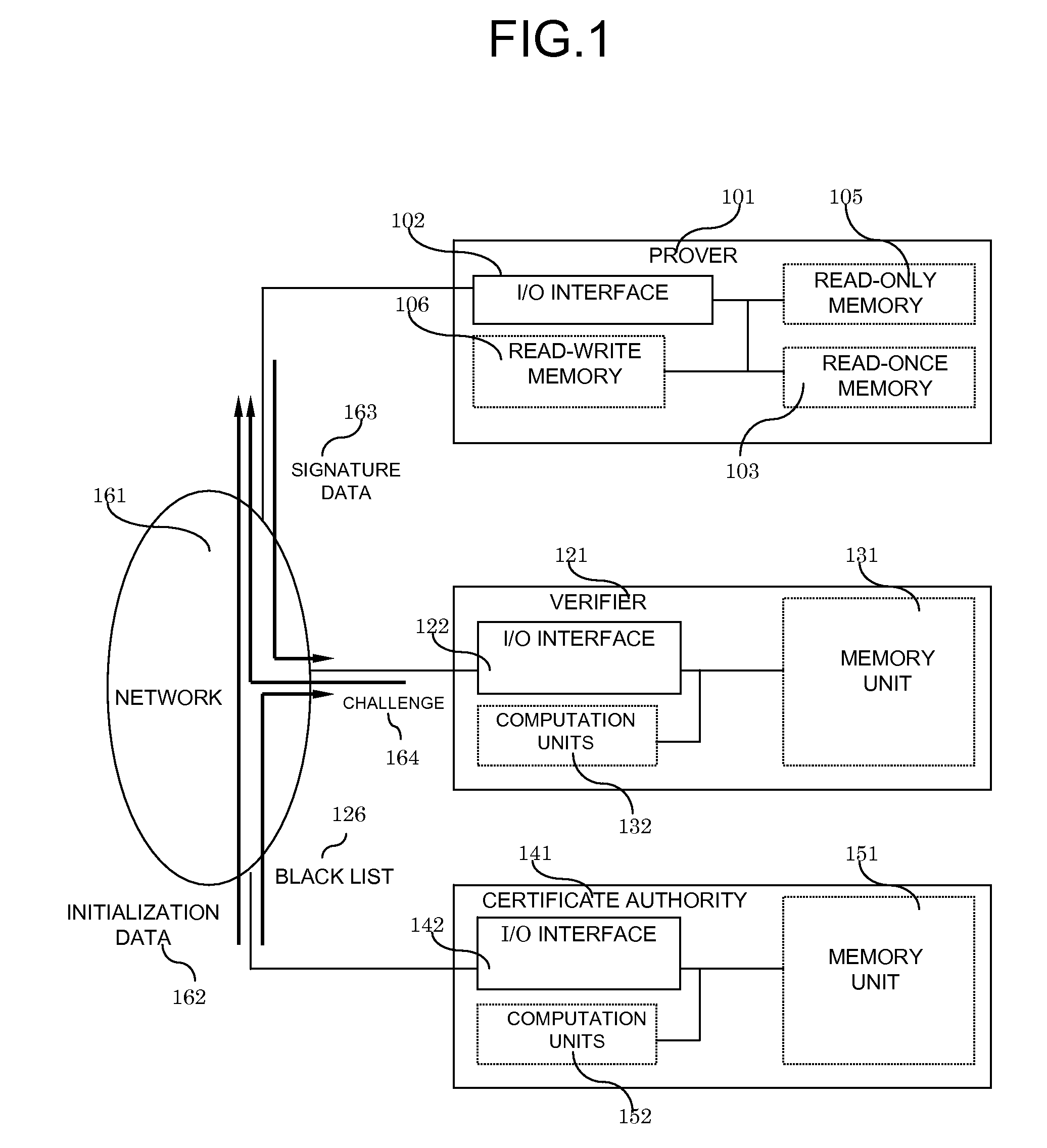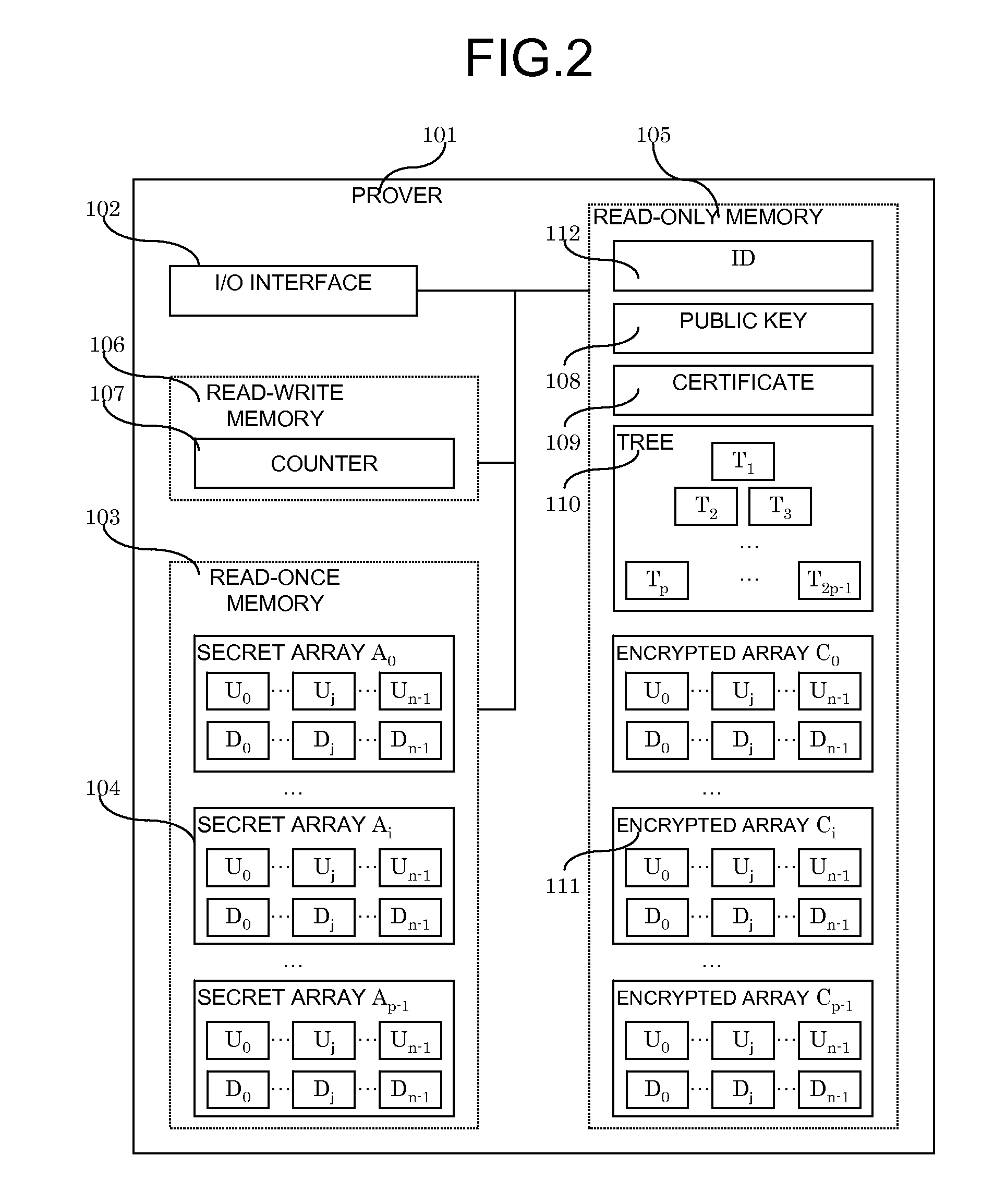System and Method for Digital Signatures and Authentication
a digital signature and authentication system technology, applied in the field of digital signature and authentication system and method, can solve the problems of lack of computational ability, significant computational ability, and power consumption of computational units, and achieve the effect of significant computational ability
- Summary
- Abstract
- Description
- Claims
- Application Information
AI Technical Summary
Benefits of technology
Problems solved by technology
Method used
Image
Examples
first embodiment
[0031]In this first embodiment, the system consists of at least three distinct elements coupled by a network: at least one prover, at least one verifier and a Certificate Authority. The role of the Certificate Authority is to initialize the data stored in the prover's memory and to issue a certificate for the prover. In addition to that, the Certificate Authority maintains a black list of provers which have been compromised, and regularly broadcasts the black list to all verifiers.
[0032]Within the system, any prover can be authenticated by any verifier, using a public-key infrastructure. The system has three parameters:[0033]The security parameter n, which is the size of the challenge to be signed by the prover.[0034]The usability parameter p, which is the number of signatures that can be signed by the prover.[0035]The hash function H and its output size h.
[0036]Authentication System, FIG. 1
[0037]The system consists of at least one prover 101, which is a memory-only platform, of at ...
embodiment 1
[0096]The printer 121 and the cartridge 101 are autonomous, and authentication can be performed without accessing any external network; in particular, the printer does not need a persistent and direct connection to the Internet or to the Certificate Authority. By simply using the locally stored Certificate Authority's public key 125, the printer can authenticate legit cartridges, thanks to the authentication mechanism described in Authentication can be performed at regular time intervals, according to the security policy of the printer company. For instance, it can be performed for every printing request, at booting time or every day. How the printer behaves in case of failed authentication is also determined by the security policy of the printer company. One possibility could be that the printer refuses printing requests for a few minutes. Therefore, even when the security parameter is not very high, say for instance n=8-bit challenges, leading to a forgery probability of 1 / 256, i...
embodiment 2
[0097]In Embodiment 2, the security parameter is n=8 bits for the message size, the hash function is MD5 with output size h=128 bits, and the number of signatures p=1024.
[0098]In this case, the read-once memory stores about 260 Kbytes of data for the secret arrays 104, whereas the read-only memory requires 260 Kbytes for the encrypted arrays 111 and 32 Kbytes for the tree data 110. The public key 108 is just one hash value, therefore 16 bytes, the certificate can be an RSA signature of 1024 bits, therefore 128 bytes and the ID 112 a product number coded on 4 bytes. In total, less than 300 Kbytes are required for the read-only memory. Finally, the counter 107 is a 1024-count counter, and occupies 2 bytes of read-write memory.
[0099]The read-once memory unit 103 will be discussed in details later; the read-only memory unit 105 is implemented as PROM and the read-write memory unit 106 as EEPROM. As for the input-output interface 102, it is a simple connector with a serial data input / out...
PUM
 Login to View More
Login to View More Abstract
Description
Claims
Application Information
 Login to View More
Login to View More - R&D
- Intellectual Property
- Life Sciences
- Materials
- Tech Scout
- Unparalleled Data Quality
- Higher Quality Content
- 60% Fewer Hallucinations
Browse by: Latest US Patents, China's latest patents, Technical Efficacy Thesaurus, Application Domain, Technology Topic, Popular Technical Reports.
© 2025 PatSnap. All rights reserved.Legal|Privacy policy|Modern Slavery Act Transparency Statement|Sitemap|About US| Contact US: help@patsnap.com



